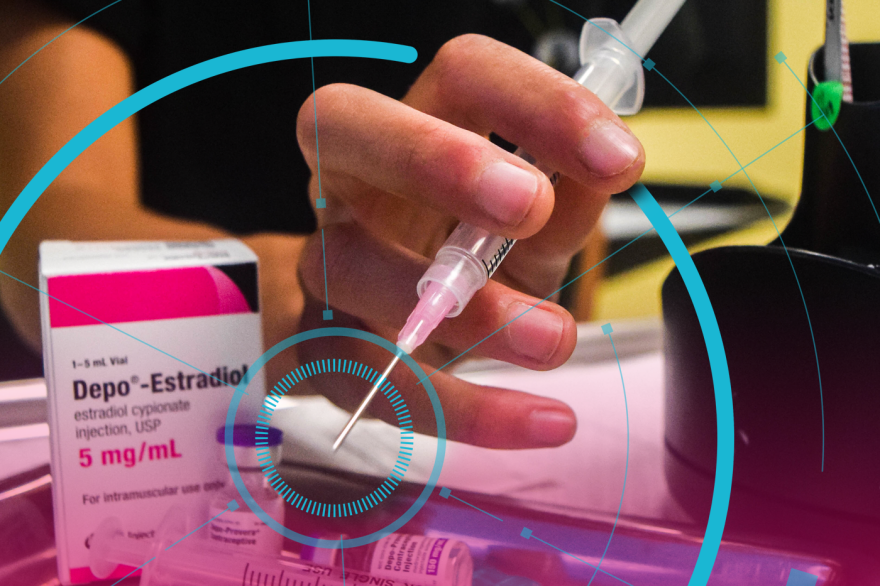San Luis Obispo's Cal Poly and the other California State universities don't provide hormone replacement therapy for students, but University of California schools do. That's the subject of a recent article in Mustang News, Cal Poly's media outlet. The student reporter, Michael Barros, is also a KCBX News intern and recently joined KCBX's Tyler Pratt in the studio.
TYLER PRATT: For those not familiar, what is hormone replacement therapy, or HRT?
MICHAEL BARROS: So HRT is a medication that can be taken in the form of an injection, a gel, or a pill and it essentially changes a lot of physical characteristics for people who want to transition from female to male [also those transitioning from male to female—in addition to its use for treating symptoms of menopause]. [For females transitioning to males,] their voice will lower, they will gain muscle, facial hair and things like that.
PRATT: As you report, it's not provided as a basic service at CSUs. Why not?
BARROS: The CSU system has Executive Order 943 that outlines basic health care services that [the schools] provide at 23 health centers. I talked to the CSU spokesperson, Elizabeth Chapin, [and] she told me that HRT is not considered a basic health care service, but did not provide further information on why that is.
PRATT: But you write, you can receive HRT at a state university, like Cal Poly, as an "augmented service." What does that mean?
BARROS: So that actually can't happen yet. But as I was reading through the policy, if the CSU system decided to provide this service it would be listed as an “augmented service,” because it's not outlined as a basic service. And for it to become an augmented service, it has to meet six requirements. It's kind of like a specialized service and it has to be ultimately approved by the CSU admin[istration].
PRATT: So how would you access HRT at a UC health center?
BARROS: Just like you would go in for any other medical treatment. You just walk in, you schedule an appointment with the doctor and the doctors are all trained with it and will get you started and write you a new prescription right there.
PRATT: Is it common for students to use HRT?
BARROS: It’s not super common. Within the transgender community, not everyone chooses to physically transition. But a lot of transgender people experience gender dysphoria and HRT … it makes them feel way better. I interviewed a lot of transgender students who talked about the difficulties that they faced when trying to access those treatments in the CSU system. [For Cal Poly students] there's only one doctor in the area, available only on Thursdays, and some are not able to get off campus to go to this doctor. There definitely is a population of people that use this treatment.
PRATT: You mention in your article that HRT can affect issues like depression in students. Can you elaborate on that?
BARROS: I interviewed some students who are either desiring to start HRT or have [already]. And one student I talked to that has already started HRT treatments said she was very, very depressed before she began and just felt like she was in the wrong body. She felt like everything was wrong and that her identity didn't match what she looked like. And so after she started HRT, she said she was riding her bike home [when] she realized it was the first day in her life she didn't feel anxious. That was the first day that she had started her treatment. So it definitely alleviates gender dysphoria for a lot of transgender people.
PRATT: Is HRT expensive?
BARROS: It’s not expensive. The only two things required for HRT are routine lab tests, which a lot of the health centers already provide—just regular blood tests, and the hormones themselves and estrogen typically runs around $30 dollars a month.
You can read Michael Barros' article, "UCs provide Hormone Replacement Therapy for students — why doesn’t Cal Poly?" on Mustang News' website.





